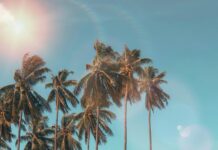Tuesday, Feb. 7 opened Writer’s Week with a phenomenal lineup of authors. Each read a piece from a recent project followed by a question and answer period.The first reading was by Charmaine Craig, a novelist and visiting assistant professor at UC Riverside. Craig read a portion of her upcoming novel based on the life of her mother, Louisa Benson Craig, an inspirational Karen community leader in Burma, beloved actress, army leader and former Miss Burma. She was introduced by fellow Novelist and Professor Goldberry Long, who said that Professor Craig certainly inherited her mother’s bravery because “having the bravery to write about her mother is a warrior-like thing to do.” This was certainly the case. During the question and answer period, Professor Craig described her struggles and triumphs in writing the novel. She said, “It was such a struggle… On the positive side, I was privileged to spend two years interviewing my mother about her life and the situation in Burma. I got the bigger picture from her.”
The second reading was by Ben Ehrenreich, a freelance journalist based in Los Angeles. He was introduced by Assistant Professor and Creative Writing Department Chair Andrew Winer, who said that Ehrenreich’s “lucid and luminous prose asks us, dares us, implores us to open our eyes.” Ehrenreich, who will be teaching at UCR spring quarter, read from his essay on the conflict in Israel and Palestine. The piece captured the role of water in the conflict, which was an unexpected and lovely focus. Ehrenreich’s journalism makes no claim of objectivity. He has a profoundly strong first person voice, which he says allows the reader to be guided around the world, depicting it to be as complicated as he perceives it to be.
Third was Michael Jaime-Becerra, another faculty member at UCR. Jaime’s work centers around El Monte, CA. He typically chooses to write in the 80s, because he says that with the coming of the Internet era, “Things are easier now.” Jaime-Becerra also gave significant insight on his writing process. He chooses to outline events, writes 500 “powerwrite” words, which he then edits into coherent paragraphs. Jaime-Becerra began his undergraduate studies at UCR as a poetry student, but after taking a course with Professor Susan Straight, chose to pursue fiction instead.
The day ended with the outstanding Stephen Minot Memorial reading from Susan Straight. Minot was a founder of the Creative Department at UC Riverside. Straight was introduced by her past student Michael Jaime-Becerra, who explained why she is so beloved to the department and the community, saying “There is no one who writes so carefully and meaningfully about Riverside and the Inland Empire… It is impossible to imagine creative writing at UCR without Professor Straight.” Professor Straight professed how seriously she takes her role in the development of new writers.
Wednesday, Feb. 8- By: Fatima Mirza & Jacqueline Balderrama
1:00 Jacqueline Winspeare (fiction & nonfiction)
2:30 B.H. Fairchild
4:00 Bonnie Bolling (Distinguished Alumni reading)
5:00 Frank Gaspar (fiction)
Writer’s Week on Wednesday kicked off with a talk by Jacqueline Winspeare, an author most known for her mystery novels surrounding her character, Maisie Dobbs. Winspeare spoke of her philosophy surrounding writing before she read from her work. She said that she strives to create fiction that touches upon the human condition, and therefore hopes her writing resonates with her readers. Her fiction often starts with a question she poses for herself, asking how she would feel if various situations were to arise. Winspeare read from her novel as well as an essay she wrote years ago, inspired by her grandfather’s experiences in World War I. Winspeare touched upon the research aspect of her work, saying that research is to be used “like seasoning in a soup.”B.H Fairchild shared his poetry and spoke of his creative process. He shared the history and inspiration behind each poem, so as to give a background for the audience. His poems resonated with audience members and were filled with poignant lines. At one point he shared, “Sometimes you write a poem just for the hell of it. You just want to have some fun.”At 4 p.m., Bonnie Bolling, a graduate of UCR’s MFA program in Creative Writing shared her poetry. Her voice was soft and quavered while she spoke, causing her poems to take on a dreamlike quality. Bolling first shared from “In the Kingdom of the Sons,” her first collection of poetry. Her poems were bold with honesty and laced with humor, and audience members were both moved and entertained by her work. A lot of the work she shared from the first half of the reading were pieces she had written and edited while doing her MFA at UCR. Currently, Bolling lives in Bahrain where she leads creative writing workshops. She then captivated the audience by sharing poems from her experience in Bahrain, which were filled with cultural references. The poems were rich with vivid imagery and meaning.Concluding Wednesday’s series, Award winning Novelist and Poet Frank Gaspar shared from his new book, “Stealing Fatima.” As a Portuguese-American growing up in Provincetown, Massachusetts, Gaspar said, “I wanted to write another novel about the town I grew up in.” The book is set in Cape Town and follows the story of a junky priest named Father Manuel who, despite his hidden loss of faith, is sent to guide and rebuild the parish. The title refers to Our Lady of Fatima which denotes the Virgin Mary’s appearance to several shepherd children in Fatima, Portugal in 1917. Gaspar read several passages including one deeply moving scene in which Manuel has a supernatural encounter with the virgin. Beautiful images of apple orchards, snow and coyote tracks provided the deep solitude of Manuel’s inner struggles and his refusal to admit that there is a God. In questions following, Gaspar said, “I’m ruthless, savage, barbaric in my rewriting,” and that he writes out of “deep necessity,” which was his reason for exploring both prose and poetry. “If I could do just one, I would. What I find is I can’t,” said Gaspar. The evening ended on a compelling note to aspiring writers to write what no one else can.
Thursday, Feb. 9- By: Jacqueline Balderrama
1:00 Christine Kitano (Distinguished Alumni reading)
2:30 Derek McKown
4:00 Mark Jarman
5:00 Garrett Hongo
Among the writers who spoke on Thursday, one was an acclaimed poet and winner of the Joseph Henry Jackson Award, Mark Jarman, who read on Thursday afternoon at 4 p.m. from his new book of selected poems, “Bone Fires.” Born in Kentucky and raised in Scotland as a pastor’s son, the poems displayed themes of family, spirituality and nature. One poem, “Descriptions of Heaven and Hell,” followed the story of Jarman as a child and his father taking him into the waves of the ocean and how frightening they were. “The image of the wave,” Jarman said, “when I was older has become an emblem no longer of terror…but of matter and spirit going together.” This also seems to be the heart of his poetry, for the pieces all exhibited an attachment to spirituality. Also eminent to Jarman’s work is his ability to travel in time through a poem, creating both past and present worlds seamlessly. Such was the case with “Encounter,” which explored the relationship of Aneas and his mother Venus in ancient time and also reflected those images in the present. Jarman expressed that when he discovered poetry as a teenager, “I would want to read it all the time.” Full of image and sensation, Jarman’s poetry was especially intriguing and wondrous while still anchored to sentiments of connecting and searching.
Friday, Feb. 10 – By: Fatima Mirza
9:30-12:00 Poetry workshop by Christine Kitano (undergraduate students)
9:30-12:00 Poetry workshop by Gary Young (graduate students)
1:00 Alexander Long
2:30 Polly Bee
4:00 Gary Young
7:30 Diane Wakoski (Keynote reader)
Friday was the final day of Writers Week and began with private workshops with poets Christine Kitano and Gary Young. Students who participated had to sign up to have their poetry workshopped weeks in advance. The workshops gave undergrads and graduate students an opportunity to work with accomplished poets in an intimate setting. Students who participated described the experience as amazing, saying that it helped them focus the point and perspective of their poem. The poets also shared with the students their own tactics and insights of writing.Alexander Long was the first to share his work on Friday. His work was edgier than the other writers and thus was refreshing to hear. His voice was distinct, and his methods were experimental.At 7:30 p.m. on Friday, Writers Week concluded with a reading by Keynote Speaker Diane Wakoski. Wakoski began her poetry career in 1960, and since then she has been the Poet In Residence at Michigan State University, where she teaches. Her reading was powerful and moving. She read three pieces from “Diamond Dog,” as well as some of her earlier work.










